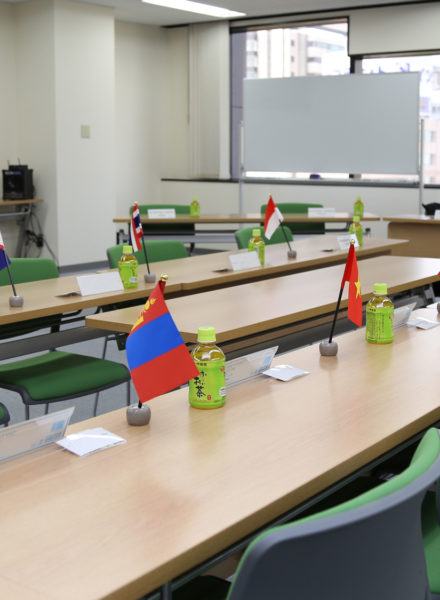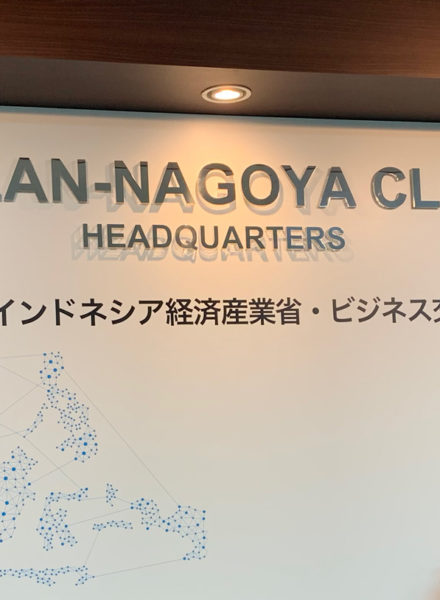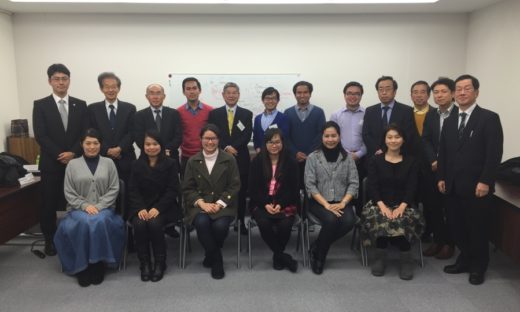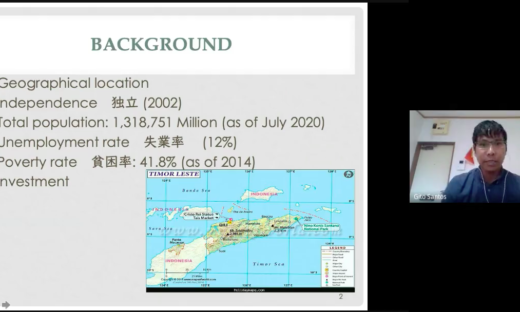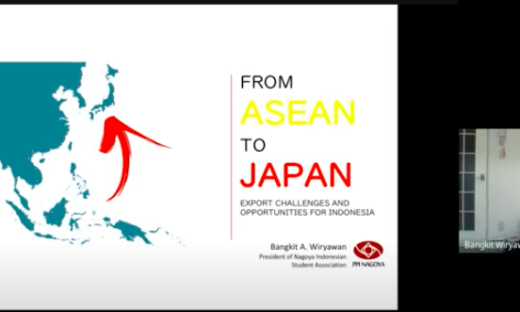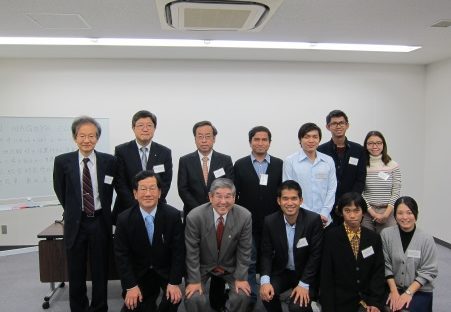第10回ミーティング報告書 2015年5月28日 (The 10th Meeting Report May 28, 2015)
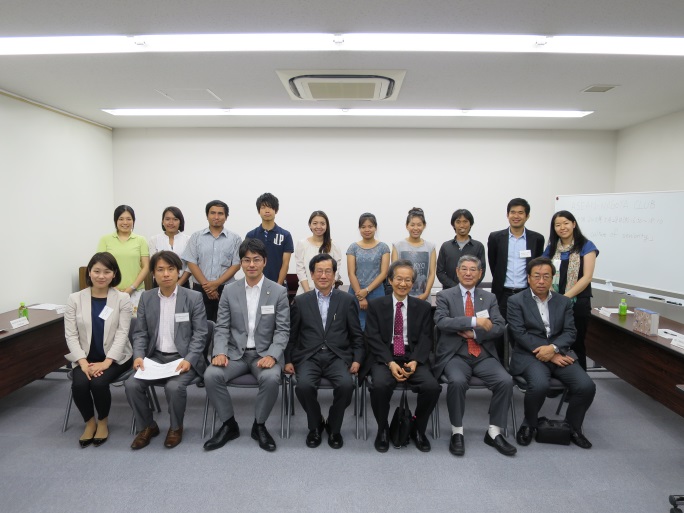
The Culture of Seniority
今月からは、留学生の皆さんから提案されたテーマに基づき、掘り下げていくことになりました。昨年12月に開催した「Cross culture meeting」シリーズとなります。5月のテーマは「seniority」です。 「seiniority」とは一般社会で言えば、「長幼の序」。企業社会で言えば、「年功序列」でしょうか。一般社会、企業社会の2つに分けて話し合いました。
留学生の皆さんが、思い出しながら母国のseniorityについてまとめてくれました。下の表は、個人的な捉え方で、母国のseniorityを一般化したものではありませんが、それぞれの国の特徴がよく分かります。やはり、日本を含めて私たちはアジアの共通の価値観を持っていることが確認できます。



一般社会では、目上の人に敬意を表するのは、ASEANのどの国も共通しています。カンボジアのように子供の結婚に関する決定権を親が持っている、子供の間でも、年上が優先するミャンマー、権力と年齢が密接な関係にあるラオスなどの例をみますと、現代日本の長幼の序はかなり曖昧なものになっていると感じます。
一方、企業社会に目を転じますと、経済発展のプロセスに応じて、年功序列に対する考え方はASEAN諸国の中でも一様ではないようです。ミャンマー、ラオスは年齢、経験を重視した年功序列が支配的のようです。インドネシアもどちからというと年齢、経験重視の企業社会です。これに対して、タイは他のASEAN諸国とは異なり比較的早くテイクオフしていった関係に一因があると思われますが、能力主義に近いといえます。面白いのはカンボジアです。一般社会では長幼の序が他国に比して厳しいのですが、企業社会では、能力主義広く浸透しているようです。seniorityの扱いについて、企業活動と一般社会を区分けして人々の意識が成り立っているのは誠に興味深いものがあります。
このようにASEAN諸国のseniorityは一般社会では目上の人に対する敬意を表す社会だということがわかります。一方、企業社会におけるseniorityは年功序列と能力主義が、国ごとに変わるようです。
さて、議論が日本のseniorityになりました。一般社会における長幼の序には大きな違いがないのですが、企業社会(組織)におけるseniorityには、全く理解できないところがあると、多数の意見がでました。留学生の皆さんに映る日本の企業社会は次のような不思議な世界だと言うのです。
アルバイトの経験がある留学生の意見です。リーダー、先輩の言うことに疑問を持ったとしても、それは前からのやり方であるからという理由で聞く耳を持ってくれない。また大学の先輩は、新人の留学生についてアドバイスをしてくれるのですが、行動を強制するような雰囲気があり、先生や先輩は恐い存在になるそうです。留学生の皆さんの疑問は、なぜ、論理的でないことについて自由な意見を交わさないのか不思議でならないということです。どうも私たち日本人は留学生からみますと、すぐれた人でも日常的な行動については論理的ではないと映るのです。
この疑問にどう答えたらよいか。私たち日本人も、答えに窮する人が多いのではないでしょうか。そこで日本社会の社会的な構造に言及した、先人の知恵を借りたいと思います。中根千枝さんの「タテ社会の人間関係」(講談社現代新書)を一つの解釈例に挙げてみました。
私たち日本人は、昔は強い序列社会で目上の人に無条件で従うという文化でした。これは世界でも例のないほど特殊な国だと指摘しています。つまり、年上の人に敬意を払うだけではなく、思考そのものも年上の人に預けてしまうという姿です。戦後、経済発展に伴い、国際社会に復帰していった過程で、日本人は国際会議で何も発言しない不気味な人種だといわれてきました。いまの日本からすれば異常な現象です。しかし、いまだにそのような現象はいたるところで見受けられます。

中根千枝さんによれば、「人と人との関係を優先する価値観をもつ社会は、宗教的ではなく、道徳的である。すなわち、対人関係が自己を位置付ける尺度となり、自己の思考を導くのである。…・日本では、反論は口答えとして慎まなければならないし、序列を乱すものとして排斥される。日本では、表面的な行動ばかりでなく、思考・意見の発表までにも序列意識が強く支配している」のです。
この点をもう少し補足しようとしますと、新渡戸稲造の「武士道」にヒントがあります。「人は才能ありとても、学問ありとても、節義なければ世に立つことを得ず。…家族が唯一の社会的単位であり、年長が才能の優秀以上に評価され(・・・家族の利害とその成員の利害は丸ごと一つ、一つにして不可分だと考えた。)そんな社会である。(出所:新渡戸稲造「武士道」 教文館)
武士道の精神が現在の企業に継承される姿を、松下幸之助氏は、次の言葉で分かりやすく教えてくれます。「昔の武士は、武士なるをもって尊しとしていました。したがって強いだけが武士ではなく、武士は人間として最高でなくてはならない。学問もやらなくてはいけないし、人情も豊かでなければならない。…しかも戦って強くならなければならない。そういうものを兼ね備えているところに、武士道精神というものがあったと思いますし、そこにまた武士道精神の尊ばれるゆえんがあったと思うのです。出所 : 松下幸之助「道は無限にある」PHP研究所
というように、上に立つものはあらゆる面においてすぐれていなければならないという前提で、年上の人に従っていたという文化がどうも背景にあるようなのです。しかしながら、今日、上に立つ人が、必ずしも万能ではありません。この前提が崩れていることがあるかもしれません。こうなりますと、私たち日本人の行動はますます奇異に映り、非論理的な姿となって、留学生の皆さんの理解が得られにくくなっていると理解できます。
もちろん、様々な理由があるかと思いますが、この日本人の非論理性は、いまだに根強く残っています。私たち日本人がさらにグローバルに展開していかなければならないことを考えますと、留学生の皆さんの指摘は、私たちにとっても貴重な財産となるのではないでしょうか。
The Culture of Seniority
At this meeting, we discussed a topic that had been widely requested by international students, i.e. the seniority in Japanese society and in corporate society.
Each international student also explained about seniority in their country which of course have different characteristics of each country. After all, we agree that we have common values in Asia, including Japan.
In the general society, it is common to all ASEAN countries to pay homage to their superiors. For example, in Cambodia, parents have the right to decide on the marriage of their children. In Myanmar, older children are prioritized, and in Laos, power and age are closely related. While in modern Japan, the order of the eldest child is quite vague.
On the other hand, looking at the corporate society, it seems that the way of thinking about seniority is not uniform among ASEAN countries according to the process of economic development. Myanmar and Laos seem to be dominated by seniority with an emphasis on age and experience. Corporate society in Indonesia emphasizes age, experience, and nepotism. On the other hand, unlike other ASEAN countries, Thailand seems to be close to meritocracy. What is interesting is Cambodia, in the general society, the order of elders and children is stricter than in other countries, but in the corporate society, meritocracy seems to be widespread.
Regarding the treatment of seniority, it is really important to raise people awareness about the difference between seniority in corporate activities and the general society.
In this way, we can see that the seniority of ASEAN countries is a society that pays homage to superiors in the general society. On the other hand, seniority and meritocracy in corporate society seem to be different from country to country. The seniority principle has often been described as a key ingredient in Japanese corporation.
Seniority and experience continue to take precedence over qualifications or ability, the idea of “respect your elders” is at the forefront of daily working life. One of the ways this manifests itself in the typical Japanese working environment is the concept of a Senpai (senior) and Kouhai (junior) system. The Senpai-Kouhai relationship in Japan necessitates that the younger person owes respect and loyalty to the older and that the older person owes guidance and advice to the younger person, who will learn and then replace the senior worker. The Junior basically need to be like a sponge, soak up all the experience, advice and information that is around us, and use it in our future career.
International students also have the similar experience while working part-time. Even if you have doubts about what the leaders and seniors said, they don’t listen because it’s the way they used to be. They also experience Senpai-Kouhai relations at the university. Basically respecting for seniors and lecturers is very important, that is why they do not feel comfortable to give opinions or disagreement about some issues.
We would like to borrow the wisdom of our predecessors, who mentioned the social structure of Japanese society. Chie Nakane’s “Human Relations in Vertical Society” (Kodansha’s New Book) is given as an example of interpretation about the culture of seniority. The Japanese used to have a culture of unconditional obedience to superiors in a strong hierarchical society. He points out that this is an unprecedentedly special country in the world. In other words, it not only pays homage to older people, but also entrusts their thoughts to older people. |
After the war, in the process of returning to the international community with economic development, it has been said that the Japanese are an eerie race who speaks nothing at international conferences. This is an unusual phenomenon for Japan today. However, such a phenomenon is still ubiquitous. According to Chie Nakane, “Japanese society has values that prioritize moral in the relationships among people, not religion. That is, interpersonal relationships serve as a measure of self-positioning and guide individual way of thinking. In simplistic terms, a senpai is a mentor, someone you look up to at work, counterarguments must be refrained. Senior dominates and gives criticism. We are not allowed to refuse, we need to listen and to absorb as much information and advice as we can.
Another reference is Bushido: The Soul of Japan, Nitobe originally wrote Bushido in English (1899). It was about a study of the way of the samurai. He found in Bushido, the Way of the warrior, the sources of the seven virtues most admired by his people: rectitude, courage, benevolence, politeness, sincerity, honor, and loyalty. He also delved into the other indigenous traditions of Japan, such as Buddhism, Shintoism, Confucianism and the moral guidelines handed down over hundreds of years by Japan’s samurai and sages. People can be very talented, very brilliant, but they can’t face the world without politeness. The family is the only social unit, and older people are valued more than a talented person.
The spirit of Bushido is inherited by the current company. Konosuke Matsushita will teach you in an easy-to-understand manner with the following words. “In the olden days, samurai were respected as samurai. Therefore, samurai is not just a symbol of power and strength but the spirit of humanity. Source: Konosuke Matsushita. It seems that there is a premise that whoever on the top position must be excellent in every aspect, this assumption may not be true. If this happens, Japanese behavior will appear more and more strange and illogical, and it will be difficult for international students to understand. Even though the culture of seniority is difficult to change, at least the input will be very useful for the society and corporates in the future.



参加者:
<日本人メンバー>
小里氏、西氏、鈴木氏、倉科氏、春名氏、箕浦氏、松久氏(コーディネーター)、田中氏(スタッフ)
<留学生メンバー>荻巣先生(コメンテーター)、島津先生(コーディネーター)、村田さん(教育学部生)、Mr.Mardiansyah Mardis、Mr.Indra Kesuma Nasution、Mr.Lim Lyhong、Mr.Pak Chanlino、Ms.May Thiri、Ms.Jaroonruangrit Nalynya、Ms.Sisouk Boualaphiane、Ms.Sreyden Vong
